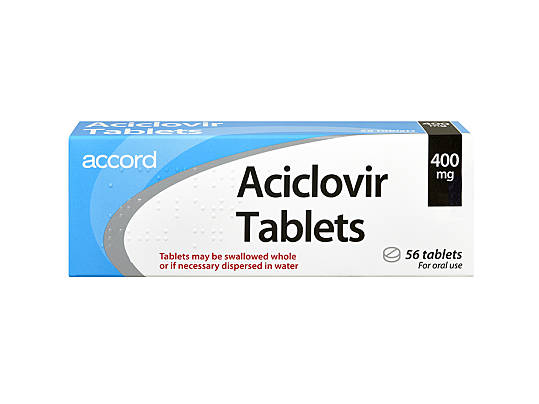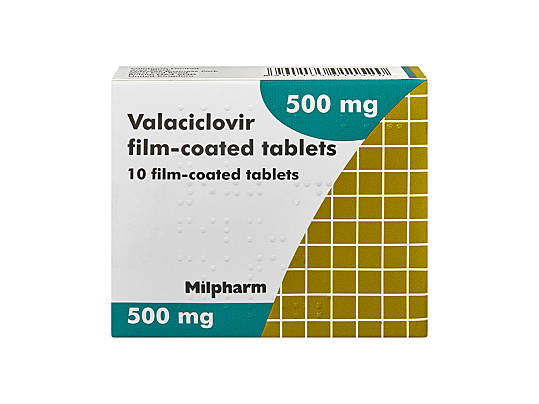How Long Does a Herpes Outbreak Last?

Medically reviewed by
Dr Kathryn BasfordLast reviewed: 26 Apr 2022
How long a genital herpes outbreak last varies between people and between outbreaks. Typically, a genital herpes outbreak may last a couple of weeks. Sometimes though, a genital herpes outbreak may last just a few days; other times it may last more than a few weeks.
Genital herpes outbreaks
The herpes virus causes small blisters (herpes sores) to appear. After a few days, these blisters burst and turn into ulcers which can be red and painful. Over time, the ulcers crust over and eventually disappear.
Genital herpes is more likely to be passed on if you are experiencing an outbreak. To reduce the risk of spread, you should avoid having sex if you or your partner have visible blisters or sores.
The first time you are infected with genital herpes, you may feel unwell with a fever and flu-like symptoms. This is then followed by blisters that develop in the genital area. Often though, genital herpes does not cause any symptoms and you may not even know you have the infection.
After the first infection, the virus lies dormant in the affected area. Later on, the virus can be reactivated, leading to a herpes outbreak. You may have several genital herpes outbreaks after a first infection. Or, you may have no further symptoms or genital herpes outbreaks after the first infection.
from £18.00
from £36.00

No results found.
Please check your spelling or try another treatment name.
How long does a herpes outbreak last?
After the first herpes outbreak, subsequent herpes outbreaks might last between 7 and 10 days. The longest a herpes outbreak can last is usually 2 to 4 weeks. Most herpes outbreaks will be shorter than this.
Timeline of a herpes outbreak
The timeline of a herpes outbreak can typically have a timeline like this:
- days 1 to 2: tingling feeling starts in the affected area
- days 3 to5: blisters appear and start to fill with fluid (pus)
- days 5 to 7: blisters start to burst, releasing fluid and turning into ulcers
- days 7 to 14: blisters scab over and start to heal
- day 14: outbreak usually resolved
After a first outbreak of genital herpes, you may find the length of later outbreaks gets shorter over time.
First signs and symptoms of a herpes outbreak
The first signs and symptoms of a genital herpes outbreak are usually a tingling or itching feeling in the affected area. You may also notice some pain, discomfort or a burning feeling.
After a couple of days, you may start to notice some small blisters appearing. There may be just one or you may have several. Over time, you may be able to see the blisters filling with fluid. The blisters will eventually burst, leading to ulcers forming. As the ulcers form, you may find it painful whilst peeing (urinating).
How long can the first herpes outbreak last?
A first outbreak of genital herpes can last about 2 weeks. Over time, herpes outbreaks usually happen less often, are shorter and are less severe.
What can trigger a herpes outbreak?
There are several different factors that are thought to trigger a herpes outbreak. These include:
- having a cold or feeling unwell
- having a weakened immune system
- sunlight or using a sunbed
- having sex
- hormonal changes including having a period
- stress
- smoking
- drinking alcohol
- wearing tight clothing
If you have recurrent genital herpes outbreaks, you may start to recognise things that might trigger an outbreak. Often though, there is no obvious trigger for a genital herpes outbreak.
Herpes outbreak treatment options
If you are experiencing a herpes outbreak, there are herpes treatment options available. You can treat a genital herpes outbreak with 3 different antiviral medications available from Asda Online Doctor:
If taken early during an outbreak of genital herpes (in the first 1 or 2 days), antiviral medicines can shorten the duration of the outbreak by 1 or 2 days. Taking antiviral medicines to treat a genital herpes outbreak can also reduce the severity of symptoms.
If you have had multiple herpes outbreaks (6 or more during a year), you may be able to take antiviral medication to try and reduce the number of outbreaks. You can speak to your doctor for advice on whether taking antiviral medication to prevent genital herpes outbreaks is suitable for you.
You can take paracetamol to relieve any pain you feel during a genital herpes outbreak. You can also use an anaesthetic gel (5% lidocaine) to relieve pain during a genital herpes outbreak. Apply the 5% lidocaine gel on affected areas before peeing (urinating).
There are other simple health care things you can try to help relieve the symptoms of a genital herpes outbreak:
- apply vaseline gently to any ulcers to prevent pain when you pee
- wash any blisters gently with salty water
- avoid scented bubble baths or soaps
- try peeing under running water to soothe pain
- avoid sex until all ulcers have healed over completely
- hold an ice pack wrapped in a cloth over painful areas
- drink plenty of water

Dr Kathryn Basford is a qualified GP who works as a GP in London, as well as with ZAVA. She graduated from the University of Manchester and completed her GP training through Whipps Cross Hospital in London.
Meet our doctorsArticle created: 26 Apr 2022
Last reviewed: 26 Apr 2022
-
BASHH (British Association for Sexual Health and HIV) Patient Information Leaflet – Herpes [2018] [accessed Mar 20222]
-
Genital Herpes (NHS) [Sep 2020] [accessed Mar 2022]
-
Herpes simplex – genital (NICE) [May 2017] [accessed Mar 2022]




(Reviews are for ZAVA UK)


GMC: 7074021

GMC: 6149061

GMC: 7085115









